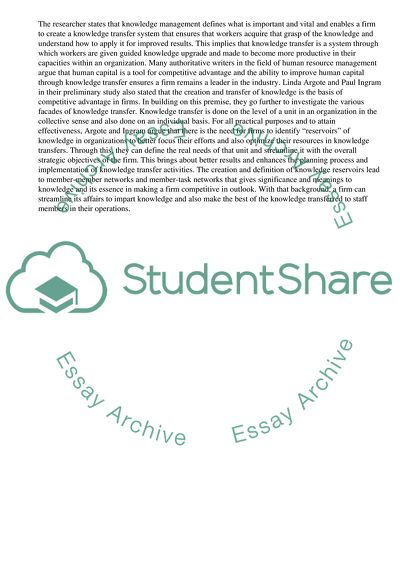Cite this document
(“The Concept Knowledge Transfer Essay Example | Topics and Well Written Essays - 750 words”, n.d.)
Retrieved from https://studentshare.org/management/1663291-knowledge-transfer-literature
Retrieved from https://studentshare.org/management/1663291-knowledge-transfer-literature
(The Concept Knowledge Transfer Essay Example | Topics and Well Written Essays - 750 Words)
https://studentshare.org/management/1663291-knowledge-transfer-literature.
https://studentshare.org/management/1663291-knowledge-transfer-literature.
“The Concept Knowledge Transfer Essay Example | Topics and Well Written Essays - 750 Words”, n.d. https://studentshare.org/management/1663291-knowledge-transfer-literature.


